Disagreement Over How to Use American Forces.
Britain and France Want U.S. Troops in The Trenches—Now!
Pershing Wants Own Control
Special to The Great War Project.
(30 April) As the American presence in France grows, finally, into a significant fighting force, the debate over how the American soldiers should be most effectively deployed generates increasing rancor.
The French and British want to throw the Americans into the front lines immediately. They want the Americans to supplement current ongoing fighting operations under the command of the French and British generals.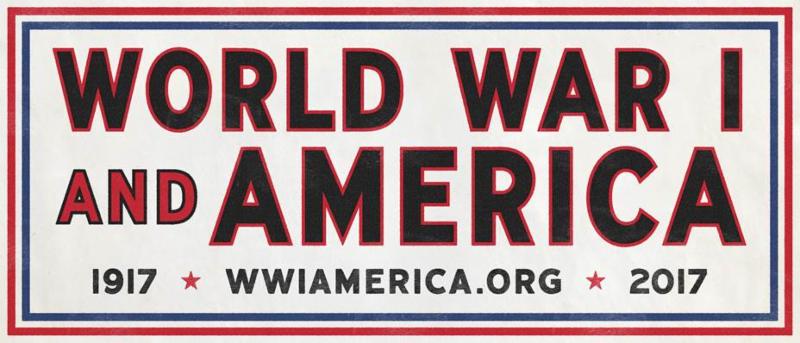
General Pershing, commander of the American Expeditionary Force, wants to organize an American army under his command exclusively – planning for the war in 1919.
The generals meet in France on May 1st. The British and French leaders press the American commander aggressively, reports historian Martin Gilbert, “to bring the existing American troops into the trenches at once. Marshall Foch, the supreme Allied Commander, “went so far as to say that unless this was done, and American infantrymen and machine-gun units sent forward immediately, all would be lost.
General Pershing is unmoved.
“I do not suppose that the American army is to be entirely at the disposal of the French and British commands.”
He insists: “We must look forward to the time when we have our own army.”
British Prime Minister David Lloyd George tries to straddle the two sides: “At the present time however,” he declares, “we are engaged in what is perhaps the decisive battle of the war.”
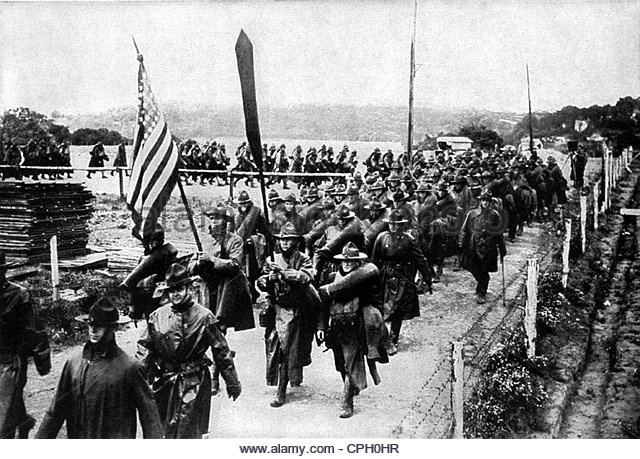
More and more Americans arriving in France.
If we lose this battle, he declares somewhat sarcastically, we’ll need the merchant ships to take home what’s left of the British and American armies.
“The threat had no effect on Pershing.” In fact, he argues more aggressively, “the time may come,” he declares, “when the American army will have to stand the brunt of this war, and it is not wise to fritter away our resources in this manner.”
That’s not a response the French and British respond to well.
Marshall Foch, the Supreme Allied Commander, replies, “that the war might be over before the American army was ready to enter the battle.”
Reports historian Gilbert, the British PM counters: “Can’t you see that the war will be lost unless we get this support?”
Pershing: “Gentlemen, I have thought this program over and will not be coerced.”
Stalemate on the battlefield, stalemate among the Allies.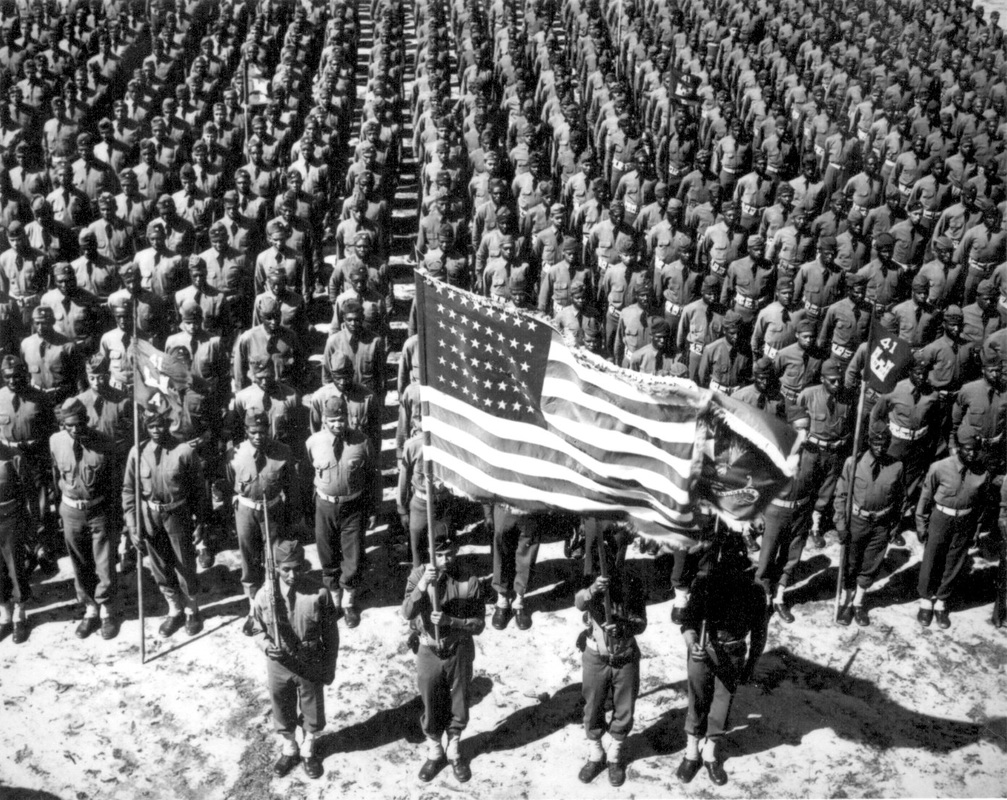
The mood among the Allied leaders turns even more unpleasant. Just since March 21st a century ago, Lloyd George tells Pershing, British casualties had been 280,000, and the French more than 340,000 men killed or wounded.
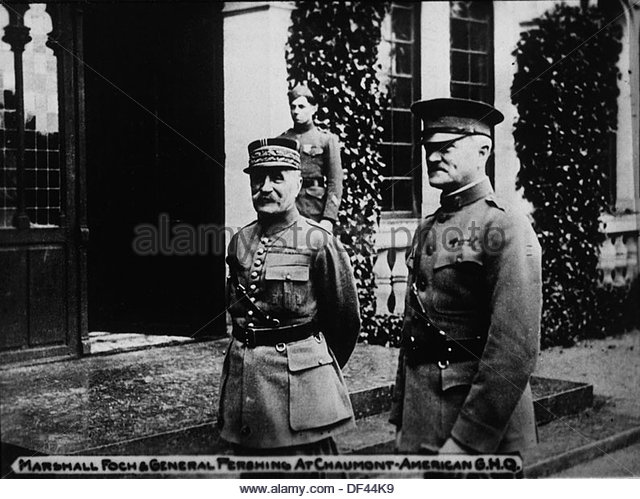
Pershing, right, and Foch
“If the United States does not come to our aid,” he tells Pershing, “then perhaps the enemy’s calculations will be correct. If France and Britain should have to yield, their defeat would be honorable, for they would have fought to their last man, while the United States would have to stop without having put into the line more men than little Belgium.”
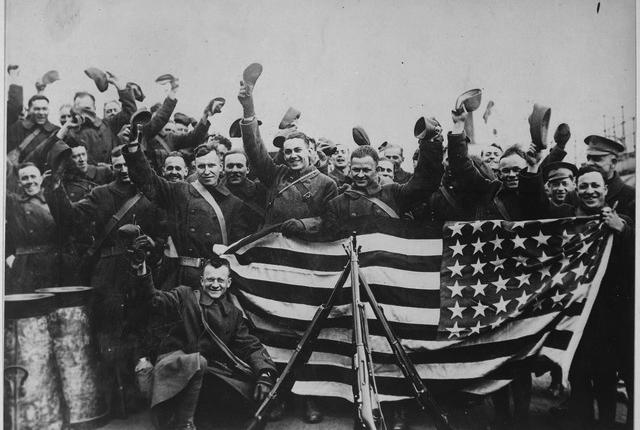
Enthusiasm for the Americans
Stalemate among the Allies indeed.

Good for General Pershing!